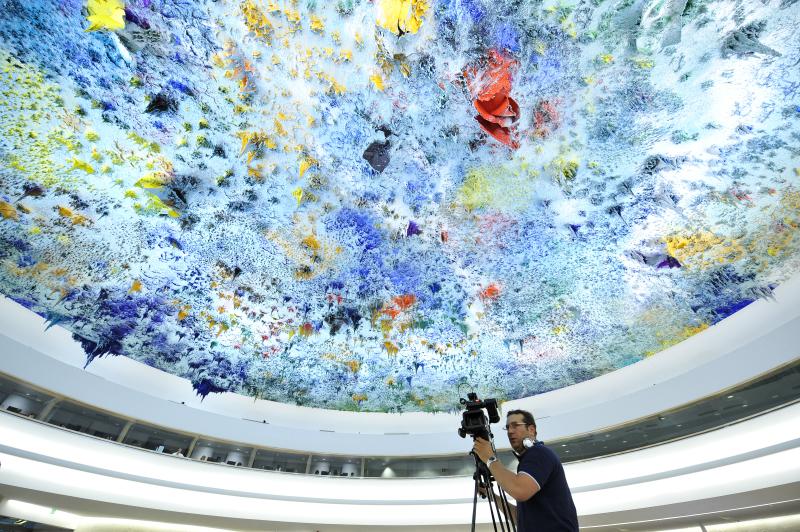This exceptional, December update on Venezuela was timed to discuss the human rights situation in Venezuela ahead of 10 January 2025 when Presidential power should pass to the winner of the Presidential elections of 28 July 2024. Given the refusal of President Maduro to concede the election, it is feared that current levels of repression against perceived opponents may increase yet further.
Repression during and after the elections was a focus of the High Commissioner’s update. He emphasised the experience of the arbitrarily detained so frequently denied fair trials, facing the use of counter terrorism laws against them, as well as ill treatment in detention centres. Closure of civic space was cited, with reference to the closure of at least three NGOs that have ceased to exist all together due to the threats, restrictions and attacks against them.
During the interactive dialogue with the High Commissioner, several States spoke of the horror of the detention of minors on charges of terrorism. The escalating repression was the result of a failure of the government to find evidence to substantiate Maduro’s claim to have won the election, said the UK.
As in several prior Human Rights Council sessions, the names of arbitrarily detained human rights defenders were cited by States and NGOs. Clara Ramírez, in a statement for ISHR, spoke of her colleague Javier Tarazona ‘who has been held for more than 1250 days, is a victim of forced disappearance and torture, facing an unfair trial, and is in a state of deteriorating health’. Also, Rocio San Miguel has been denied the right to choose a lawyer she trusts, and whose family is also facing criminalisation.
OHCHR’s return to Caracas – in the form of one officer at this point – was welcomed by most States although several noted that this had to mark a new phase of ‘genuine cooperation’ by the government. Others noted that the mandate of the Office can in no way be diluted. In fact, the UK asked for OHCHR to strengthen its protection mandate in regard to defenders in the country and those forced in to exile, something Venezuelan defenders have long called for.
Paraguay encouraged the High Commissioner in the production of his next report, with a detailed assessment of the implementation of UN recommendations made to Venezuela to date. The lack of such a mandated assessment to date, has been a criticism of Venezuelan NGOs for some months.
Colombia took the floor for the first time in months during Council dialogues on Venezuela, to urge Venezuela back in to the Interamerican Human Rights System (it had left the jurisdiction of the Inter-American Court on Human Rights in 2013).
Despite the High Commissioner carefully noting that OHCHR’s role is as ‘bridge-builder between the institutions of the State and the people of the country’ and not the government, the dialogue took place with the participation of a Venezuelan delegation that is widely considered to have stolen the Presidential elections.
‘The fact that the discussion about future cooperation with OHCHR was taking place with delegates representing a government many consider illegitimate created an odd dynamic’, said ISHR’s Eleanor Openshaw.
‘States must continue to call for a full and transparent account of the election results and respect of those results in the transfer of power on 10 January 2025, as well as speak out in support of the work of Venezuelan human rights defenders both in the country and in exile’, she added.




